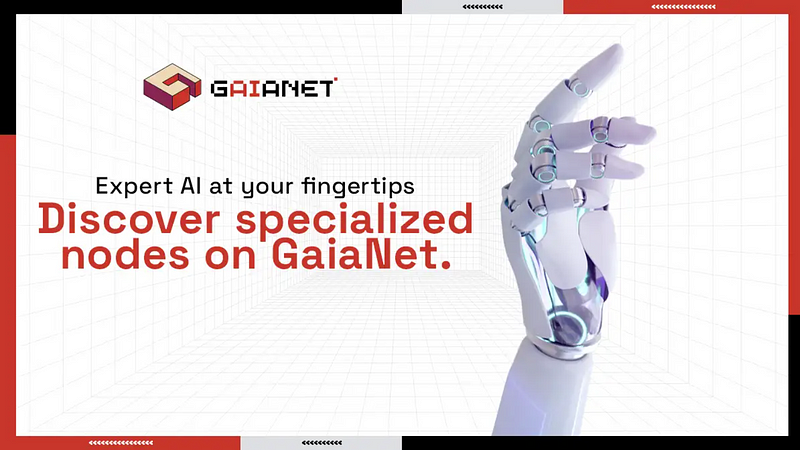Solving Tomorrow’s Challenges with Decentralized Machine Learning
Imagine this: You’re searching online for information to make an important decision about the best healthcare plan for your family. Despite…

Imagine this: You’re searching online for information to make an important decision about the best healthcare plan for your family. Despite your efforts, much of the information you find is conflicting and outdated. Furthermore, the algorithms behind the search results are biased, leading to unreliable information that could impact your decision-making and ultimately, your and your loved one’s well-being. This scenario illustrates the challenges of centralized AI, where opaque algorithms can perpetuate biases and inequalities, leaving individuals with unreliable information and potentially harmful outcomes.
However, decentralized AI (DeAI) presents a compelling alternative to this problem as well as many others — a world where bias is mitigated, and decision-making processes are transparent and fair.
Today, the pervasive influence of artificial intelligence (AI) shapes various facets of our lives, from decision-making processes to the content we consume. However, the centralized nature of many AI systems has raised concerns regarding bias, privacy, and control. It’s a complex issue with significant implications for individuals and society as a whole.
DeAI is shifting how we conceptualize and interact with AI technologies. By distributing control and decision-making across a network of nodes, DeAI offers a more transparent, equitable, and empowering alternative to traditional centralized models.
One of the key benefits of DeAI lies in its ability to mitigate bias in AI-driven decision-making. In a centralized system, AI algorithms often rely on biased data sources, leading to discriminatory outcomes and reinforcing existing inequalities. DeAI, on the other hand, promotes data sovereignty and transparency, allowing users to verify and validate the integrity of the data used in AI models. This not only enhances the fairness and inclusivity of AI systems but also fosters trust among users and stakeholders.
The benefits of decentralized AI extend beyond bias mitigation. DeAI democratizes access to AI technologies, opening up new opportunities for collaboration and innovation. By removing barriers to entry and empowering individuals to contribute their expertise and resources, DeAI accelerates the pace of technological advancement and expands the potential applications of AI across industries.
Think about this scenario: a family with children of various ages struggles with homework assignments requiring specialized knowledge beyond what the parents possess. In such situations, turning to DeAI becomes a game-changer. Through tailored educational resources and personalized tutoring assistance, parents can now provide their children with the support they need to excel in all subjects.
Another instance in which DeAI would be helpful is an individual seeking financial advice on investment strategies and portfolio management. Rather than relying on traditional financial institutions, they opt for a personalized approach through DeAI. They interact with an unbiased financial advisor, discuss their financial goals, risk tolerance, and investment preferences, then receive tailored recommendations without high account minimums, hidden fees or human-oriented outside incentives.
Consider the exorbitant costs associated with centralized AI systems — the high fees for accessing AI services, and the hefty computational resources required to train and deploy AI models. DeAI addresses these challenges by leveraging distributed networks of nodes and incentivizing participation. Through sustainable incentive structures and transparent governance mechanisms, DeAI ensures fair and equitable resource allocation, driving down costs and democratizing access to AI technologies.
However, transitioning to a DeAI ecosystem is not without its challenges. Technical hurdles, regulatory considerations, and cultural shifts all pose significant obstacles to widespread adoption. Additionally, skepticism and resistance from entrenched interests may impede progress toward a fully decentralized landscape.
Yet, despite these challenges, the promise of DeAI remains tantalizingly within reach. Its commitment to fostering collaboration, transparency, and accountability means DeAI has the potential to reshape the future of AI technology in profound and transformative ways. It offers a path towards a more inclusive, ethical, and human-centric approach to AI — one where the benefits of AI are shared by all members of society.
Overall, the journey towards DeAI is an ongoing and evolving process — one that requires collective effort, innovation, and determination. By embracing the principles of decentralization and harnessing the transformative power of AI, we have the opportunity to build a future where AI works for the benefit of humanity, rather than at its expense. The possibilities are endless, and the potential is limitless.
Contact Info:
hello@gaianet.ai
About GaiaNet.AI
GaiaNet stands as a trailblazer in decentralized AI technology, dedicated to reshaping the tech industry with a focus on user privacy, transparency, and control. Our cutting-edge open-source infrastructure empowers users by ensuring privacy and censorship resistance in daily AI activities through a dynamic network of peer-to-peer edge nodes. This framework fosters the creation and collaboration of innovative AI business ecosystems, benefiting both private data holders and developers. GaiaNet aims to revolutionize the user experience with AI chatbots, seamlessly introducing transformative changes while preserving the intuitive technology and satisfaction that currently exists in the Web 2.0 era.